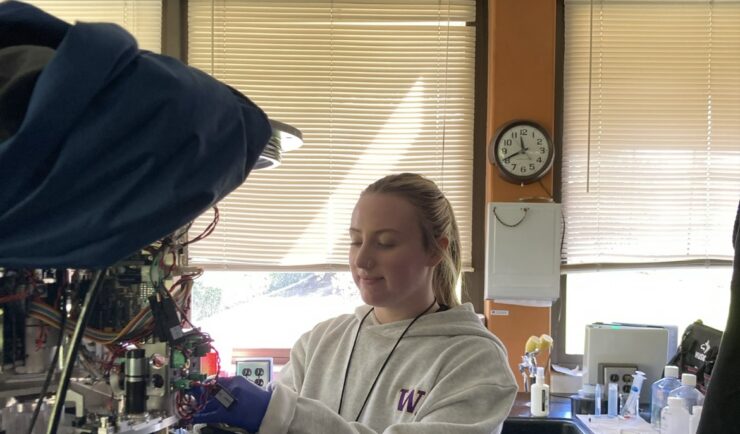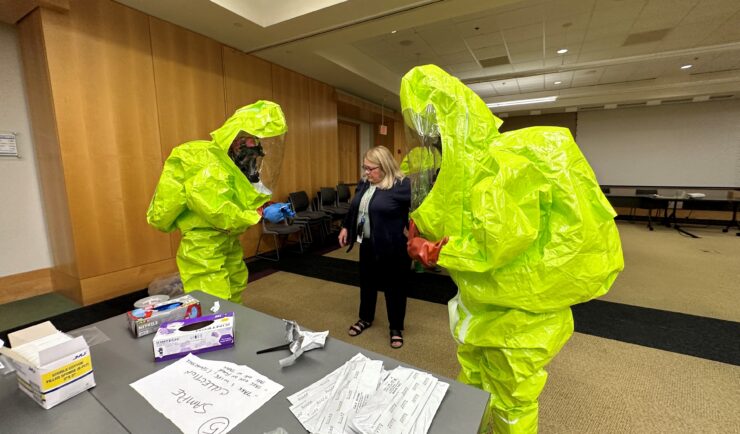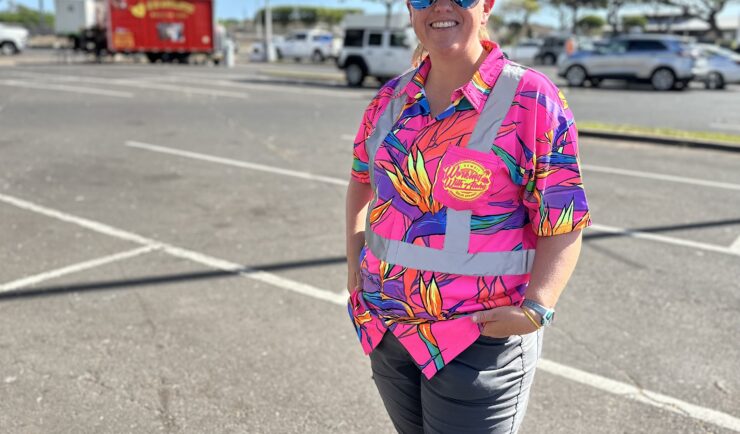- CSS News, Success Stories
- Safety, Health, & Environmental Compliance
Employees Receive Green Sustainability Award of Excellence
Congratulations to our team supporting the Center for Disease Control (CDC) for receiving the Green Sustainability Award of Excellence. Our team led the charge helping CDC to upgrade their spill cabinets across all campuses (Atlanta, GA; Fort Collins, CO; San Juan, PR), which now include a more sustainable material called Trivorex ®. This highly absorbent substance helps neutralize chemicals, reducing human risk. Not only is Trivorex ® better for the environment, it is also more durable with a longer life span. Our team took the lead in preparing 155 cabinets, then distributing 135 throughout the CDC campuses. By purchasing the material in bulk, the team is saving the client 58% in purchasing and shipping costs. This was a massive undertaking that our team of experienced safety specialists was able to execute in a timely manner. In addition, with the estimated savings on waste removal, the cabinets will pay for themselves within two years. As an added bonus, our team helped upgrade the spill cabinet’s gloves to give laboratorians better dexterity and comparable protection at a reduced cost. The orange Nitrile gloves pictured below are twice the thickness of a normal Nitrile surgical glove, and provide good protection for poisons, acids and bases. The clear gloves were designed for NASA to use for solvents which are used heavily by CDC’s laboratorians. Combined, these new gloves save the client even more in material cost.

New spill cabinet.

Trivorex ® (lower left) a chemical neutralizer now included in each spill cabinet.

The new gloves are highly protective for a lower cost.
See More CSS Insights

Monitoring Algal Blooms for Harmful Toxins
CSS employee owners support NOAA’s National Centers for Coastal Ocean Science (NCCOS) Harmful Algal Blooms (HAB) Sensor Development Team in their efforts to detect and monitor these harmful algal blooms in coastal waters where they are likely to occur. HAB monitoring is critical for detecting harmful toxins produced by some algae. When present in over…

Providing Yearly Response Training
CSS scientists supporting the Environmental Protection Agency’s (EPA) Scientific and Technical Assistance for Consequence Management (STACM) contract are experienced in EPA’s emergency response efforts, both natural and manmade. To help EPA staff prepare for these emergency response efforts, CSS staff provide yearly response training. The training includes review of respiratory protection equipment, operation checks, a…

Assisting With Maui Wildfire Recovery
As part of our support to U.S. Environmental Protection Agency (EPA) Region 9 Superfund Technical Assessment & Response Team (START)—for which we are subcontracted through Weston Solutions, Inc.—CSS employee owners have been on-site in three-week rotations to assist throughout the rigorous recovery process.
